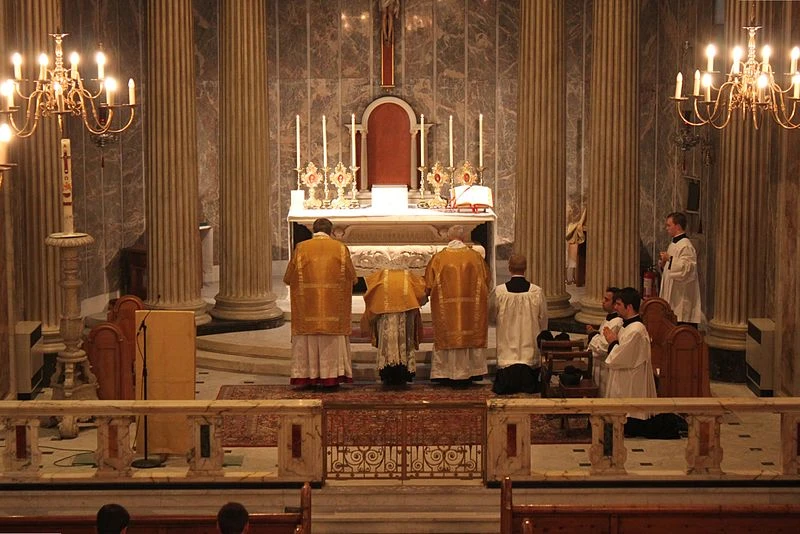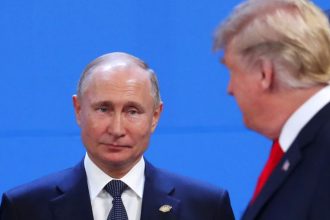In Vatican City on July 3, 2025, a spokesperson from the Vatican downplayed the importance of newly leaked documents that question the rationale behind Pope Francis’ limitations on the Traditional Latin Mass. The spokesman labeled the documents as “partial and incomplete.”
The leaked information indicates that a number of bishops had a more positive perspective on the Traditional Latin Mass than what Pope Francis suggested in his controversial 2021 restrictions on its celebration. Vatican journalist Diane Montagna shared excerpts from an internal Vatican report concerning a worldwide consultation of bishops in her Substack newsletter on July 1, reigniting debate over the Pope’s decision at a time when some liturgical traditionalists are hopeful that the new Pope Leo might either revise or soften the previous actions.
Matteo Bruni, the director of the Holy See Press Office, stated on July 3 that the leaked documents “presumably concern part of one of the documents on which the decision [to restrict the Latin Mass] is based.” In response to a question from CNA during a press conference on a different subject, Bruni described the reports as “a very partial and incomplete reconstruction of the decision-making process,” while withholding confirmation of their authenticity.
He further noted that “other documentation, other reports, also the result of further consultations” were considered in relation to the restrictions on the Latin Mass.
An official from the Dicastery for Divine Worship and the Discipline of the Sacraments, which oversees the application of Pope Francis’ decree Traditionis Custodes, confirmed to CNA on July 3 that the department had “nothing further to add” to Bruni’s comments.
Critics of Traditionis Custodes have praised the leaked texts for providing evidence that Pope Francis misrepresented his reasoning for implementing strict limitations on the celebration of the Latin Mass. This decree reversed permissions that were previously granted by Pope Benedict XVI in his 2007 document, Summorum Pontificum.
Joseph Shaw, president of the Latin Mass federation Una Voce International, expressed in a newsletter on July 2 that the claim suggesting a majority of bishops sought restrictions on the Traditional Latin Mass was dubious, asserting that the leaked documents reveal a different reality. “This document shows for all to see that it is completely false,” he argued, stating that “only the views of the minority of bishops who really disliked the TLM were being acted upon. The majority view was ignored.”
Traditionis Custodes imposed major limitations on the use of liturgical texts from before the reforms of the Second Vatican Council. In the decree, Pope Francis highlighted that he had considered “the wishes expressed by the episcopate” and taken into account the perspective of the Congregation for the Doctrine of the Faith.
In a letter accompanying the decree, the Pope stated his concern over the responses received from a 2020 survey he had requested from the Dicastery for the Doctrine of the Faith regarding the implementation of the 2007 norms on the Traditional Latin Mass. He emphasized that the responses were troubling and indicated a need for intervention, as the initial intent of his predecessors to promote unity among Catholics with varying liturgical preferences was often overlooked, exacerbating divisions within the Church.
According to one of the leaked documents, an internal “overall assessment,” which Montagna asserts is part of an unpublished report exceeding 200 pages arising from the 2020 questionnaire, indicates that “the majority of bishops who responded … and who have generously and intelligently implemented the MP [motu proprio] Summorum Pontificum, ultimately express satisfaction with it.” However, some bishops have noted that the motu proprio has not achieved its goal of fostering reconciliation and have called for its abolishment.
The assessment further reveals that some bishops prefer to revert to the pre-2007 regulations for the Traditional Latin Mass, which required local bishop approval for its celebration, to better manage the situation. Nevertheless, the majority of bishops opined that modifying the MP Summorum Pontificum would likely do more harm than good.










